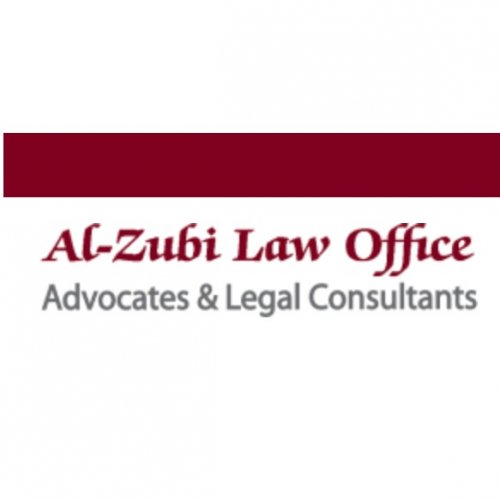Best Media, Technology and Telecoms Lawyers in Palestine
Share your needs with us, get contacted by law firms.
Free. Takes 2 min.
Or refine your search by selecting a city:
List of the best lawyers in Palestine
About Media, Technology and Telecoms Law in Palestine
The field of Media, Technology, and Telecommunications (MTT) in Palestine is a rapidly evolving area shaped by both technological advancements and regulatory developments. In Palestine, these sectors play a crucial role in communication, information dissemination, and economic development. The landscape is characterized by a mix of traditional and modern media, burgeoning technology startups, and a growing dependence on telecommunications for both urban and rural communities. Legal frameworks governing these sectors address issues such as digital rights, content regulation, privacy, intellectual property, and infrastructure management. Navigating these laws requires a sound understanding of both local and international regulations, making legal insights essential for businesses and individuals involved in Media, Technology, and Telecoms.
Why You May Need a Lawyer
There are several situations where individuals or businesses may require legal assistance in the area of Media, Technology, and Telecoms:
- Starting a technology business or a media platform that requires understanding of local laws and regulations.
- Intellectual property issues such as copyright, patent, or trademark disputes.
- Compliance with privacy and data protection regulations.
- Negotiating contracts related to technology services and partnerships.
- Resolving disputes involving telecommunications services, such as issues with service providers.
- Regulations concerning digital content distribution and streaming services.
- Cybersecurity and handling data breaches or cyber incidents.
- Defamation, censorship, and freedom of expression issues in media law.
Local Laws Overview
In Palestine, the legal environment for Media, Technology, and Telecoms is shaped by an intricate blend of local regulations and international frameworks. Key aspects include:
- Intellectual Property: Laws are in place to protect patents, trademarks, and copyrights, though enforcement can pose challenges.
- Telecommunications Regulation: The sector is overseen by regulatory bodies that manage licensing, service quality, and consumer protection.
- Data Protection: Privacy laws address data collection, use, and storage practices to protect individual rights.
- Content and Media Regulation: Guidelines exist to manage broadcasting standards, media registrations, and content dissemination.
- Cybercrime Legislation: Laws providing frameworks for handling cybercrime and enhancing digital security are continuously evolving.
Frequently Asked Questions
What are the main legal challenges in the Palestinian tech sector?
Common challenges include navigating regulations, protecting intellectual property, and adapting to evolving data protection laws.
How can I ensure my startup complies with local tech laws?
Consult with legal professionals specializing in tech law to ensure compliance with applicable regulations and standards.
Are there specific licenses required for operating a media company in Palestine?
Yes, media companies often require licenses and must adhere to regulatory standards set by relevant authorities.
What should I know about data privacy laws in Palestine?
Organizations must comply with data protection laws, ensuring proper data handling, transparency, and security measures are in place.
How do telecom regulations affect internet service providers?
Telecom regulations impact licensing, service delivery standards, pricing structures, and consumer rights for ISPs.
What legal measures exist for cybersecurity in Palestine?
Legislation focuses on cybercrime prevention, data protection, and enhancing national digital security frameworks.
Can freedom of speech be legally challenged in Palestinian media?
While freedom of speech is protected, it is subject to limitations related to defamation, incitement, and national security considerations.
How does intellectual property law affect digital content creators?
Creators must navigate copyright and licensing laws to protect their works and avoid infringement claims.
What actions can be taken against telecom service issues?
Legal recourse includes filing complaints with regulatory authorities or pursuing resolution through legal channels.
Are there legal restrictions on online content in Palestine?
Online content is subject to regulations that govern misinformation, hate speech, and other prohibited materials.
Additional Resources
Individuals seeking legal advice in Media, Technology, and Telecoms can consult the following resources:
- Palestinian Ministry of Telecommunications and Information Technology
- Palestinian Bar Association
- Local chapters of international organizations, such as the International Telecommunication Union (ITU)
- Technology incubators and accelerators offering legal support for startups
Next Steps
If you require legal assistance in the fields of Media, Technology, and Telecoms, consider the following steps:
- Identify the specific legal issue you are facing and the desired outcome.
- Consult with a qualified lawyer with expertise in Media, Technology, and Telecoms law.
- Gather relevant documentation and information to present your case effectively.
- Consider alternative dispute resolution methods if appropriate for resolving disputes.
- Stay informed about ongoing regulatory changes that could impact your situation.
Lawzana helps you find the best lawyers and law firms in Palestine through a curated and pre-screened list of qualified legal professionals. Our platform offers rankings and detailed profiles of attorneys and law firms, allowing you to compare based on practice areas, including Media, Technology and Telecoms, experience, and client feedback.
Each profile includes a description of the firm's areas of practice, client reviews, team members and partners, year of establishment, spoken languages, office locations, contact information, social media presence, and any published articles or resources. Most firms on our platform speak English and are experienced in both local and international legal matters.
Get a quote from top-rated law firms in Palestine — quickly, securely, and without unnecessary hassle.
Disclaimer:
The information provided on this page is for general informational purposes only and does not constitute legal advice. While we strive to ensure the accuracy and relevance of the content, legal information may change over time, and interpretations of the law can vary. You should always consult with a qualified legal professional for advice specific to your situation.
We disclaim all liability for actions taken or not taken based on the content of this page. If you believe any information is incorrect or outdated, please contact us, and we will review and update it where appropriate.
Browse media, technology and telecoms law firms by service in Palestine
Palestine Attorneys in related practice areas.
Browse media, technology and telecoms law firms by city in Palestine
Refine your search by selecting a city.










